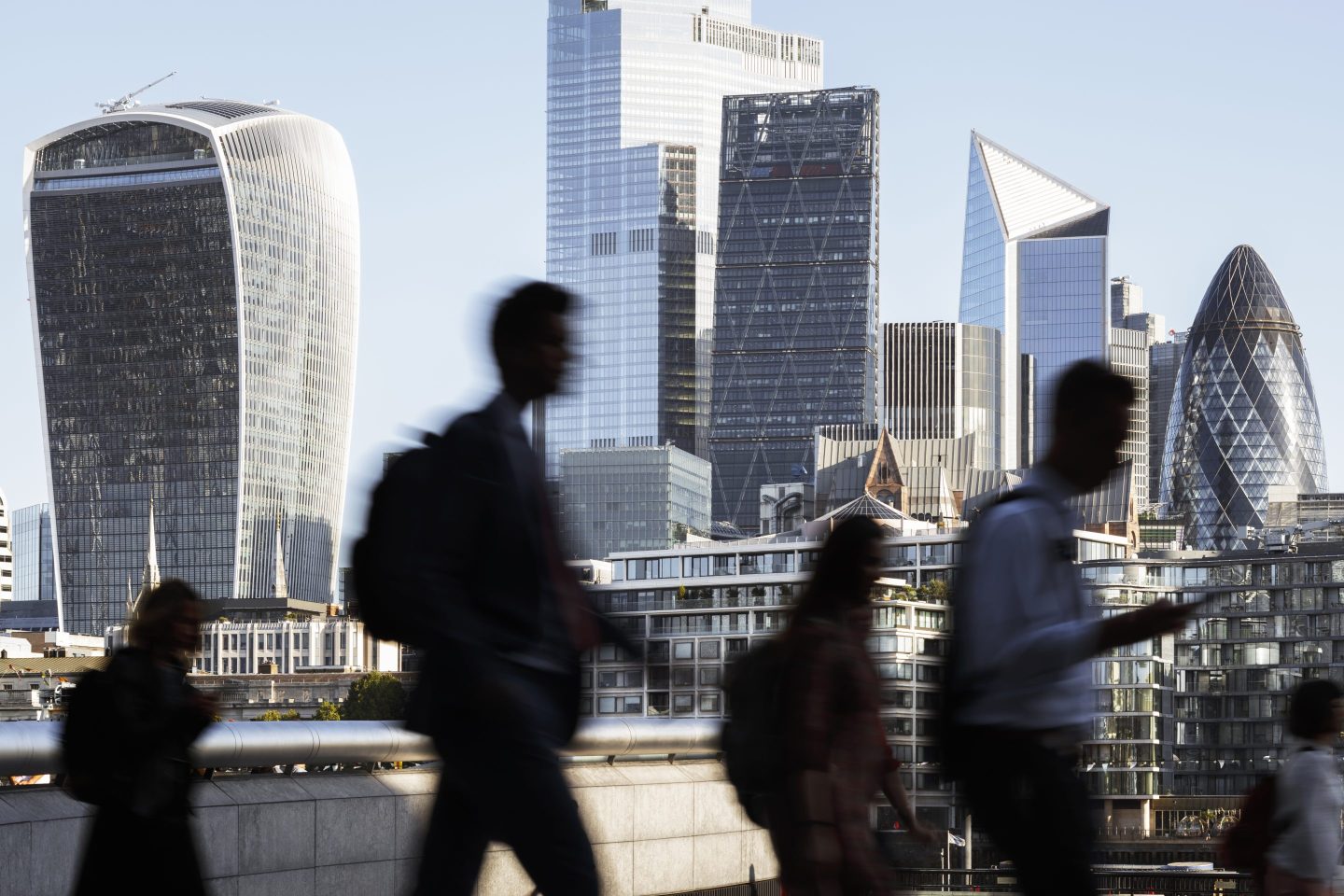Britain is likely to face more frequent technical recessions after a slowdown in the economy’s speed limit made it vulnerable to growth shocks, according to Bloomberg Economics.
The analysis reveals that the UK’s trend growth rate — the pace it which the economy can sustainably grow without boosting inflation — has halved from an annual average of 2.5% between 1955 and 2009 to 1.2% in the years ahead.
Chief UK Economist Dan Hanson found that there have been 15 episodes since 1955 when the economy was hit by a shock large enough to trigger a technical recession — defined as two consecutive quarters of shrinking output — based on the current trend growth rate. Future recessions may occur once every five years rather than the historical average of once every eight.
The findings suggest gloom will continue to hang over the economy with more frequent recessions ramping up the pressure on policymakers in government and at the Bank of England. Prime Minister Keir Starmer, who has promised to lift Britain’s growth rate, has presided over a sharp slowdown since his Labour Party took power last July.
“There are good reasons to think technical recessions will be more frequent in coming years than in the past,” Hanson said. “The UK’s trend rate of growth has fallen, meaning the shocks that would previously have prompted growth just to slow, are now enough to generate a fall in output.”
However, he said it is unlikely to make big recessions that are accompanied by a surge in unemployment more prevalent.
The economy has performed poorly since the end of the pandemic, suffering a mild recession in the second half of 2023 as inflation and higher interest rates weighed heavily. GDP flatlined in the third quarter of 2024 and the BOE expects zero growth in the fourth quarter too.
While a pickup in 2025 is forecast, growth is set to remain well below the rates seen before the financial crisis as weak productivity continues to hamper the economy’s potential.
Chancellor of the Exchequer Rachel Reeves underscored her promise to turbocharge the economy in an interview with Bloomberg News Editor-in-Chief John Micklethwait in Davos on Wednesday.
She said that the “answer can’t always be no” on major infrastructure projects and planning decisions as Labour tries to unblock investments.
“That’s been the problem in Britain for a long time,” she said. “That when there was a choice between something that would grow the economy and sort of anything else, ‘anything else’ always won.”











